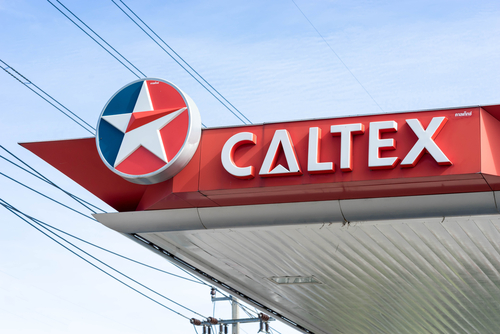
The third round of public hearings into the effectiveness of the Franchising Code of Conduct on Friday saw allegations of bullying, intimidation and wage fraud hurled from former franchisees.
Caltex, Foodco and embattled franchisor, Retail Food Group (RFG) took the biggest hits, with a series of franchisees outlining instances of price-gouging on the supply chain, forcing them to pay far more for standard product lines such as milk, coffee beans and Coke.
The news comes at a tough time for Caltex, with Inside Retail reporting last week that one former franchisee was fined more than $100,000 for falsifying wage documents, just months after a Fair Work Ombudsman report found that three quarters of Caltex sites were in breach of workplace laws.
In February, the brand announced it would be getting out of franchising altogether, converting all franchised service stations to company owned stores.
Caltex said it had developed a “compelling and fair” offer to all franchisees, however the inquiry heard on Friday that the valuations were anything but.
Franchisee Bruce Hollett said the sites were grossly undervalued, citing other instances of poor support on the franchisor end.
Hollett said the prices of stocked items set by Caltex are significantly higher than if they were purchased by franchisees from the suppliers directly.
Specifically, Hollett told the inquiry the wholesale cost of a 24-pack of 600ml cans of Coca-Cola is $22.26, yet Caltex charges its franchisees $49.31, a price gouging technique often referred to as ‘skimming’.
Similarly, Foodco was not exempt from the price-gouging allegations, with franchisees stating that two-litres of milk costs $2 at the local supermarket, however Foodco requires its franchisees to purchase it from head office at a price of $2.40.
Franchisee Maggie Xu told the parliamentary inquiry she paid $300,000 for a Foodco Jamaica Blue franchise in the Burwood shopping centre in 2014, under a six year franchise agreement with a lease of three years.
However a few years after signing the agreement, Foodco opened a Muffin Break store within close proximity, resulting in a 40% loss in sale for Xu.
She told the inquiry when the lease was up for renewal, Foodco refuse to renew, refused any new buyers and forced her to vacate the site for no compensation before billing her $43,000 to de-fit the store.
In her submission, Xu said there was no compensation offered despite having more than three years left on the franchise agreement.
“New legislation needs to come in to prevent others experiencing what I have experienced,” Xu said.
RFG, fresh off the announcement of an $87.6 million full year loss in early June, faced more scrutiny as Michel’s Patisserie franchisee, Devi Trimuryani suggested changes to the business model and lack of franchisor support are the direct cause of her impending bankruptcy.
Peter Buckingham, Managing Director of consulting firm Spectrum Analysis Australia Pty Ltd and member of the Franchising Council of Australia (FCA) suggesting the sector is on the road to recovery.
In his submission to the hearing, Buckingham acknowledged the former indiscretions of some rogue operators but praised the FCA and ACCC’s work in the area.
“The industry, in conjunction with the FCA and ACCC have cleaned up the rogue operators, and are doing a very good job to improve the standards of Franchisors, service providers and others attached to the industry,” Buckingham stated in his submission.
Darryn McAuliffe, CEO of FRANdata furthered this by stating he doesn’t believe there is an endemic problem.
McAuliffe made reference to the fact that the statistical level of disputes in Australian franchising remains below two percent, with mediation a highly effective dispute resolution mechanism.
McAuliffe suggested that the results were the actions of few rather than the majority and that the code needs little amendment.
Currently, Australia has more franchisees per head of population than anywhere else in the world, generating an estimated $170 billion in revenue.

